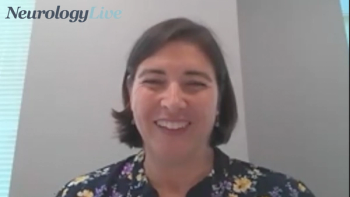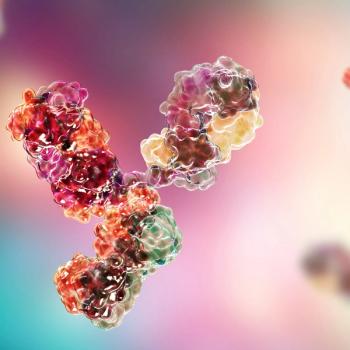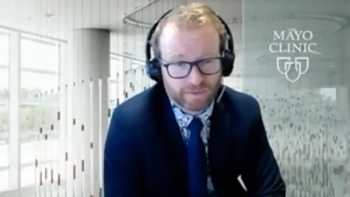
The cofounder and chief product development officer of Zevra Therapeutics talked about the phase 1 clinical trial of KP1077 for narcolepsy and potentially using it to treat other conditions. [WATCH TIME: 5 minutes]

The cofounder and chief product development officer of Zevra Therapeutics talked about the phase 1 clinical trial of KP1077 for narcolepsy and potentially using it to treat other conditions. [WATCH TIME: 5 minutes]

After 90 days, investigators found that tenecteplase was not associated with improvements in functional outcome, nor did it differ from placebo on mortality.

Mind Moments®, a podcast from NeurologyLive®, brings you an exclusive interview with Robert Zivadinov, MD, PhD. [LISTEN TIME: 30 minutes]

NMOSD-related optic neuritis represented the strongest predictive risk factor of failure to attain visual recovery of at least 0.3 logMAR, with an odds ratio of 10.47.

Resilience was positively correlated with quality of life in patients with narcolepsy type 1, according to a recent published study.

Greater cumulative exposure to HbA1c concentrations in the range of 6% to less than 8%, targets proposed by most geriatrics’ guidelines for healthier older people, were associated with lower hazard of dementia.

The director of the Feil Family Brain and Mind Research Institute at Weill Cornell Medicine talked about brain health in relation to vascular health ahead of the 2023 AAN annual meeting. [WATCH TIME: 3 minutes]

After showing promise in a phase 2 assessment, Taisho Pharmaceutical’s TS-142 will be assessed in a long-term study of 300 patients with the sleeping disorder.

Collectively, the results suggested that multiple sclerosis and migraine may co-occur because they share several genetic variants, rather than migraine causing MS.

Andrew Siderowf, MD, director of the Parkinson disease and movement center at the University of Pennsylvania, talked about available therapeutics and potential future therapies in research for Parkinson disease.

An immunology fellow at Brigham and Women’s Hospital provided perspective on the positive impacts a new diagnostic criterion for MOGAD brings to the clinical community. [WATCH TIME: 4 minutes]

Despite years of use of gold-standard therapy levodopa, therapeutic development in Parkinson disease has advanced rapidly and expanded to numerous novel pathways and targets.

The research fellow at the Neuroimmunology Clinic and Research Laboratory, Massachusetts General Hospital and Harvard Medical School, talked about his research of cell function in NMOSD to be presented at the upcoming AAN annual meeting. [WATCH TIME: 6 minutes]

The director of the Memory & Cognitive Disorders Clinic at Hoag Neuroscience Institute provided detail on an educational course that examined medication management for Parkinson disease psychosis.

Sheryl Lapidus, MA, senior director of patient advocacy at Horizon Therapeutics, talked about the findings from a recently conducted patient survey on NMOSD and the importance of advocacy in the field.

The vascular neurologist at Allegheny Health Network provided insight on the need to create consensus guidelines that further explain the treatment, management, and rehab of basilar artery occlusions. [WATCH TIME: 3 minutes]

CSL Behring's subcutaneous immune globulin is the first and only immune globulin available in prefilled syringes for patients with primary immunodeficiency or chronic inflammatory demyelinating polyneuropathy.

Avantis is a platform device by Reach Neuro that empowers poststoke patients to regain use of their arm and hand, strengthening their muscle activity without imposing unintended movements.

The neurologist at Mayo Clinic in Jacksonville Florida spoke about early detection, prevention, and time to intervene with treatment in autoimmune encephalitis. [WATCH TIME: 5 minutes]

As therapeutic development has advanced in Parkinson disease management, the introduction of on-demand options have extended ON time for patients and altered the paradigm of care.

AbbVie’s oral calcitonin gene-related peptide receptor antagonist, marketed as Qulipta, is now approved for both chronic and episodic migraine. The FDA's decision was supported by data from the PROGRESS trial.

In a study of more than 1500 adolescents, two-thirds of individuals experienced relief from functional disability with Nerivio.

Fenfluramine was originally approved as a therapy for Dravet syndrome in 2020, and later gained expanded indication for Lennox-Gastaut syndrome in 2022.

The research fellow at the Neuroimmunology Clinic and Research Laboratory, Massachusetts General Hospital and Harvard Medical School, talked about having safer and more specific treatments for NMOSD that are antigen-specific. [WATCH TIME: 4 minutes]

The oral treatment, marketed as Rizafilm, is a disintegrating film formulation of the 5-HT1 receptor agonist and is bioequivalent to Merck’s Maxalt-MLT.

Psychosis is estimated to affect more than half of patients with Parkinson disease, and there is a growing need for improved management and therapeutic development.

Here's some of what is coming soon to NeurologyLive® this week.

Research that is already underway will be necessary to confirm the safety and efficacy of this class of Rett syndrome therapies, and targeting IGF-1 may be a possibility for treating additional neurological disorders beyond Rett.

Disease-modifying agents will require early detection, including comprehensive evaluation of disease severity and alternative or confounding diagnoses. When the long-awaited moment arrives, when disease-modifying therapies finally are available for ADRDs…will we be ready?

Test your neurology knowledge with NeurologyLive®'s weekly quiz series, featuring questions on a variety of clinical and historical neurology topics. This week's topic is stroke and cerebrovascular disease.